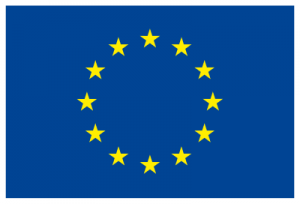Proceedings of the Final RICHES International Conference, “Identity Matters”, which took place in Amsterdam on 14 and 15 April 2016.
Read More →
This project has received funding from the European Union’s Seventh Framework Programme for research, technological development and demonstration under grant agreement n° 612789.
Cultural Heritage
D7.3 Public-Private Partnership Guidelines for CH
Report introducing Public-Private Partnerships for cultural heritage, identifying the main fields of implementation, the working models and the actors involved, as well as the respective benefits and challenges of such a partnership. It provides recommendations based on the lessons learned during the project.
Read More →D4.3 Structures for community and territorial cohesion
Report examining the role of cultural heritage in relation to community and territorial cohesion It focuses on how cultural heritage resources can be deployed in the construction of localised and spatially defined communities, and, where relevant, it examines the ways in which digital technology is being used in this process.
Read More →RICHES Think Paper 08. Cultural Heritage as fuel for innovation: enabling the power of creation
How is innovation stimulated? Where does CH fit in the innovation process? What is the role of CH creators and managers in the innovation process of a society? How can an innovative environment be nurtured? This Think Paper explores the role of CH in innovation and focuses on the changing digital landscape where CH exists. The main argument is that the digital availability of CH content can serve as trigger to fuel innovation in all sectors of society.
Read More →RICHES Think Paper 07. Public-Private Partnerships for Cultural Heritage: Opportunities, Challenges, Future Steps
This Think Paper addresses the theme of Public-Private Partnerships (PPP) and raises questions about the validity of these partnerships for public administrations, the private sector and citizens. When the requirements of these parties are well served, then we can expect PPP to become an accelerator for the investments in the cultural heritage sector. This Think Paper provides an overview of what PPP is, with a special focus on PPP and cultural heritage, discussing opportunities and advantages, identifying some challenges, and proposing a set of future steps to gain more benefits from PPP.
Read More →European Policy Brief. The Economic and Fiscal Dimension of Cultural Heritage.
This policy brief focuses on the effects of two forms of government support: VAT regulation for CH goods and services and direct subsidies to CH organisations. It presents the results and outcomes of the research that explores the relation between the characteristics of different European countries and the effects of government support in VAT rates for CH organisations, and it describes the actions that can be taken to stimulate a CH-rich and CH-engaged European society.
Read More →European Policy Brief. Food Heritage and Culture: Changing Spaces of Production and Consumption.
The aim of this policy brief is to highlight the growth of community-led food initiatives and the changing spaces of food production and consumption. It shows how food culture can be a force for change and how citizens can co-create cultural heritage around food. It provides some brief examples of community-led food initiatives and makes recommendations for policies which are needed to enable these to thrive.
Read More →European Policy Brief. The impact of European water policy on the water CH
This policy brief summarises the findings of the MEMOLA project with regard to the impact of European water policy on the water cultural heritage associated with historical irrigation systems. The brief also presents suggestions for policy interventions in order to establish the mechanisms and criteria for the delimitation of their values and for their protection.
Read More →Report of the First RICHES Policy Seminar
Report of the RICHES first policy seminar, ‘New Horizons for Cultural Heritage – Recalibrating relationships: bringing cultural heritage and people together in a changing Europe’, hosted in Brussels on 19 October 2015.
Read More →D3.1 Transformantion, change and best practice for CH processes
Report presenting the results of investigations into how digital practices are transforming the traditional cultural heritage interactions and practices. It explores the current challenges and potential opportunities for CH that lie ahead and reflects the context of change related to following fields: CH held by cultural institutions; mediated and unmediated CH; traditional hand-making skills; transformations of physical spaces, places and territories; digitization on performance-based CH.
Read More →